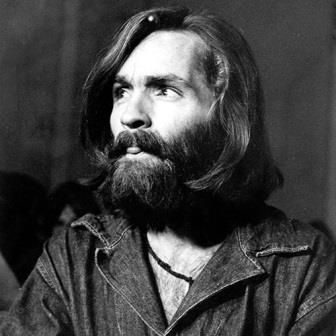Introduction
The name Charles Manson evokes a shiver of fear and fascination, even decades after his notorious reign of terror in the late 1960s. While Manson himself is long gone, his influence and ideology continue to permeate popular culture in unexpected ways. This article delves into the dark legacy of Charles Manson, exploring how his ideas, crimes, and persona persist in contemporary society through various mediums, from movies and music to books and internet subcultures.
1. Movies and Television:
Manson’s life and crimes have been the subject of numerous films and TV shows, depicting his magnetic yet malevolent charisma and the horrific acts committed by his followers. Movies like “Helter Skelter” (1976) and more recently, Quentin Tarantino’s “Once Upon a Time in Hollywood” (2019), have brought Manson’s story to new generations, ensuring that the memory of his deeds remains vivid in the public imagination.
2. Music:
Manson’s influence on the music industry is profound. The Beatles’ song “Helter Skelter” became a symbol of his apocalyptic ideology, inspiring several artists and bands. Moreover, musicians like Marilyn Manson adopted his name, blending it with that of Marilyn Monroe, to create a persona that challenges societal norms and explores the darker aspects of human nature.
3. Literature and True Crime:
True crime literature has long been fascinated by Manson and his followers. Books like “Helter Skelter” by Vincent Bugliosi, the prosecutor in Manson’s trial, have become bestsellers, dissecting the case and delving into the psyche of the cult. Contemporary authors continue to explore Manson’s legacy, using his character as a backdrop for exploring themes of manipulation, power, and the human capacity for violence.
4. Internet Subcultures and Conspiracy Theories:
The internet age has given rise to various subcultures and conspiracy theories, with Manson often serving as a focal point. Online forums and social media platforms provide a space for discussions about his ideology, life, and crimes. Some conspiracy theorists even perpetuate the idea that Manson was part of a larger government conspiracy, ensuring his presence in the darker corners of the internet.
5. Fashion and Pop Iconography:
Manson’s image, with his distinctive long hair and piercing gaze, has become iconic in the realm of pop culture. Fashion designers have drawn inspiration from his counterculture aesthetic, incorporating elements of his style into clothing lines. Manson’s face, tattoos, and quotes have also found their way onto merchandise, making him a macabre symbol of rebellion for some.
Conclusion
The legacy of Charles Manson is a complex and deeply disturbing tapestry woven into the fabric of popular culture. While his crimes were undeniably heinous, the continued fascination with his persona serves as a testament to the enduring allure of true crime narratives and the human fascination with the darker aspects of humanity. Understanding Manson’s influence on popular culture is essential, not only for dissecting the complexities of his character but also for recognizing the societal undercurrents that continue to perpetuate his legacy. As long as artists, writers, and creators draw inspiration from his story, the specter of Charles Manson will persist, reminding us of the chilling depths to which human depravity can sink.
